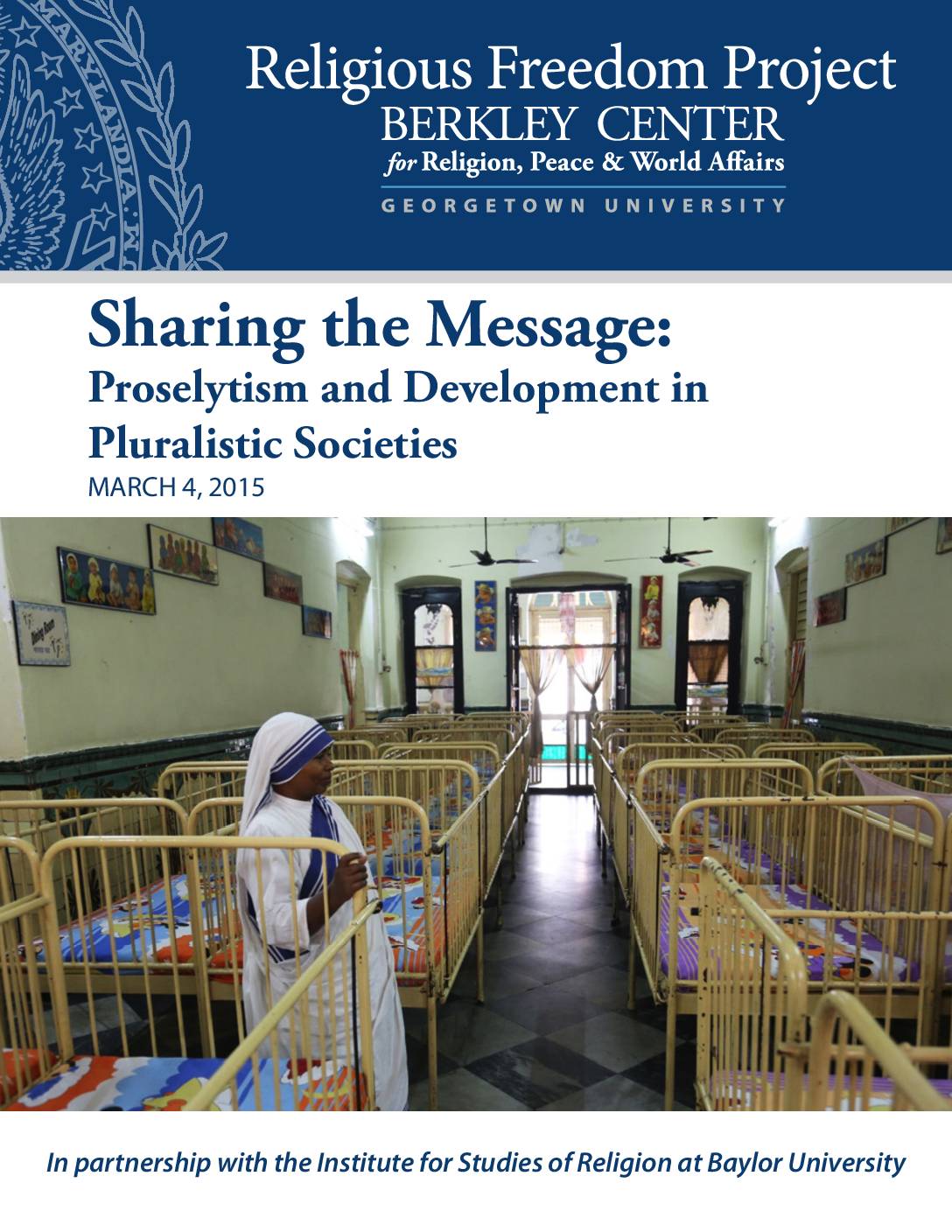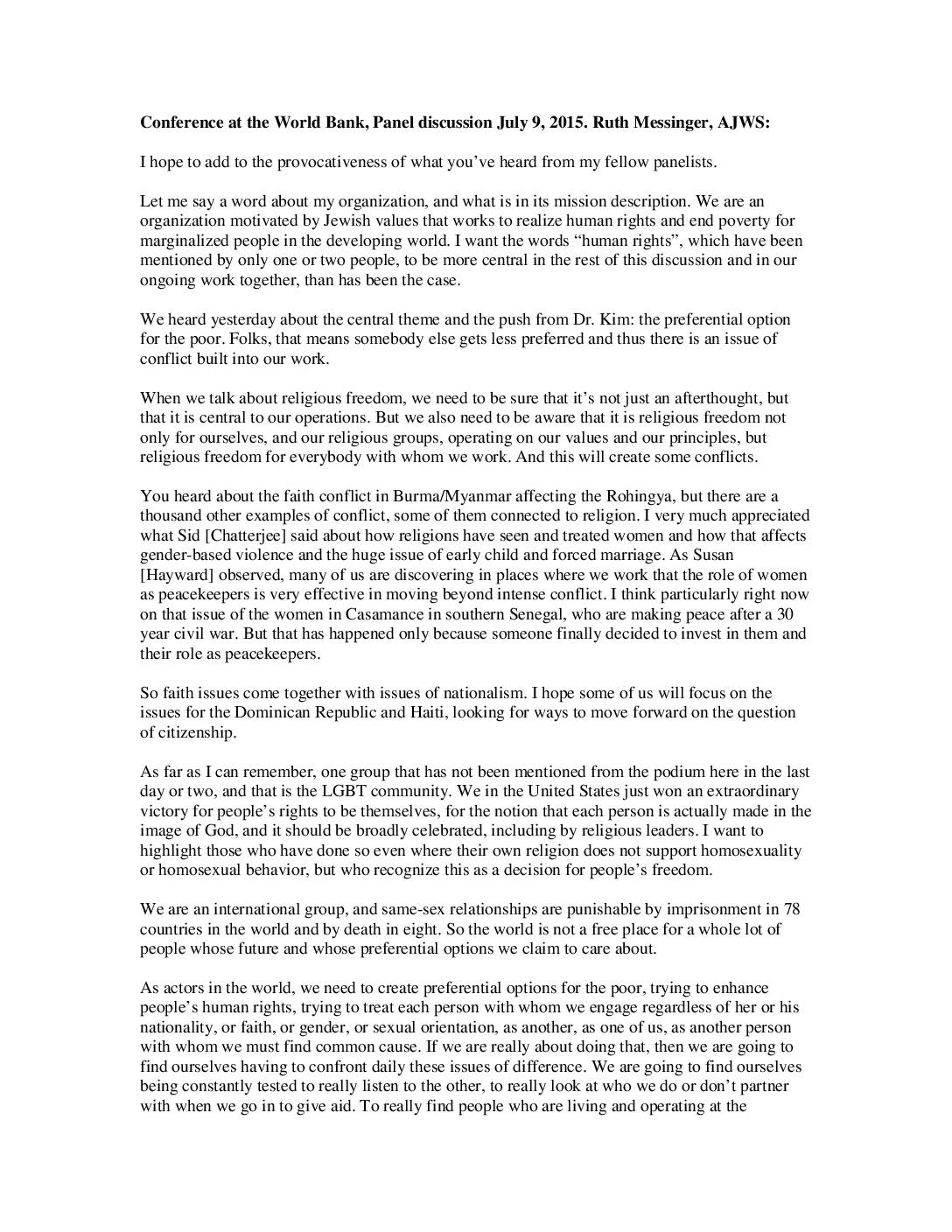The challenge: Each country frames relationships between secular authorities and religious institutions and leaders in different ways, with norms and specific approaches often defined in the constitution and laws. These may confer privileges or restrictions to all or various groups and may address for example the circumstances in which proselytizing can occur and provisions for education managed by religious bodies. These laws and norms are relevant for many dimensions of development work and need to be understood in efforts to benefit from the assets that religious communities bring to development work. This session will explore both positive and negative examples of intersections of legal frameworks and development practice, looking to concrete ways to appreciate and respect the sensitivities around state-religion relationships while helping to maximize positive engagement.
Jump to section:




